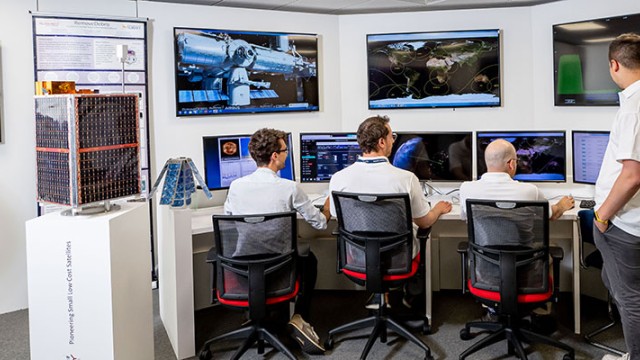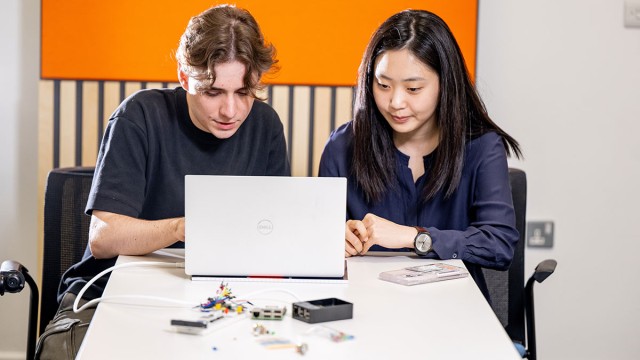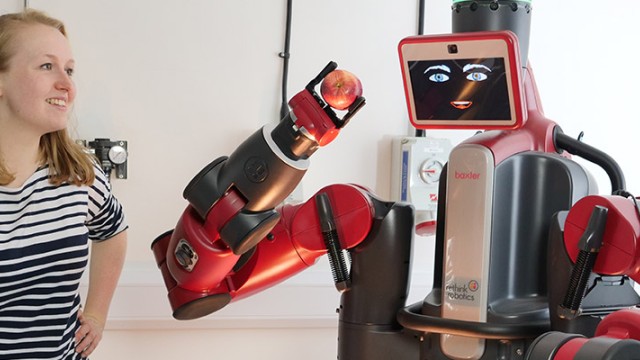Electrical and electronic engineering
This ever-evolving, dynamic discipline covers a wide range of exciting subjects like space and satellites, AI and machine learning, nanotechnology, renewable energy, intelligent communication systems and robotics. Our campus is home to several world-class research centres which will play a big role in your learning life here at Surrey, including the 5G/6G Innovation Centre, Advanced Technology Institute, Centre for Vision, Speech and Signal Processing and Surrey Space Centre.
Top 100
We're ranked top 100 for Computer Science and engineering in the Shanghai Global Ranking of Academic Subjects 2024
Developing your employability
94% of our undergraduate graduates are in work or further education, Graduate Outcomes 2024, HESA*
*UK domiciled graduates of full-time, undergraduate qualifications, in full-time employment, from higher education institutions.
What our students say
Developing your employability
97 per cent of our postgraduate graduates go on to employment or further study*
*Graduate Outcomes 2023, HESA.
Students and graduates

Research excellence
The Research Excellence Framework (REF 2021) ranked engineering 15th in the UK for *research power.
*Research power is the overall quality of submissions, calculated by grade point average and multiplied by the full-time equivalent number of staff submitted.
































